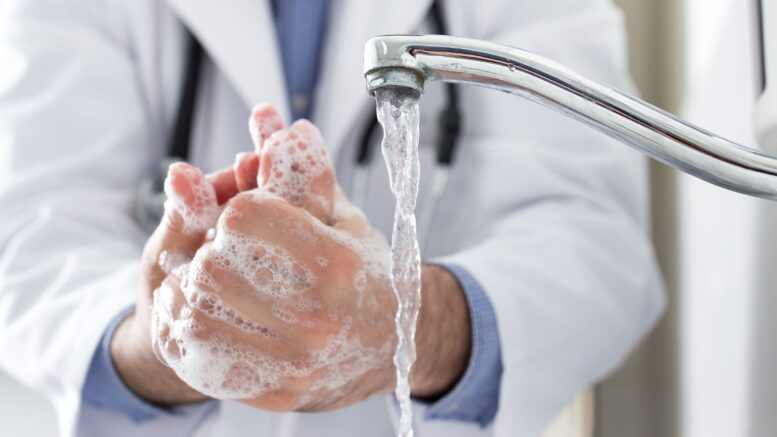Findings from a new study published in the American Journal of Infection Control (AJIC), highlight perceptions of and barriers to reliable hand hygiene among specific clinician subgroups. The results, from the first study of its kind, provide insights that can be used to design and implement future, targeted interventions to optimize hand hygiene reliability among medical professionals.
“While prior studies focused on challenges to hand hygiene reliability by healthcare role, we believe our study is the first to highlight key differences in perceived barriers and facilitators by service line and career tenure,” said Ana M. Vaughan-Malloy, MD, MPH, associate hospital epidemiologist at Boston Children’s Hospital and the lead author of the study. “Our data demonstrate that nuances across clinician subgroups can impact an organization’s efforts to optimize hand hygiene reliability through the healthcare continuum and can inform human factors engineering tools and methods to help organizations more effectively promote hand hygiene.”
While hand hygiene is critical to prevent healthcare-associated infections (HAIs), reliability remains low in hospitals today and there is a lack of published data evaluating clinicians’ perceived barriers to achieving and maintaining high hand hygiene reliability.
Vaughan and colleagues evaluated the potential of human factors engineering (HFE) to identify interventions that could be implemented across physician groups to improve hand hygiene reliability. HFE applies information about human factors to design interactive systems that involve people, tools, technology, and work environments, to ensure safety, effectiveness, and ease of use. Awareness of barriers, facilitators, and perceptions is required for HFE tools and methods to be utilized effectively.
Using one of the most commonly applied HFE models (the Systems Engineering Initiative for Patient Safety 2.0 model, or SEIPS 2.0), as well as two World Health Organization hand hygiene surveys, the researchers developed an electronic survey exploring six HFE domains: technology and tools, person, organization, tasks, environment, and care processes. They shared the survey with 200 physicians, nurse practitioners, and physician assistants practicing within a 406-bed pediatric hospital.
Results suggest that a majority of clinicians view hand hygiene as essential to patient safety, but aspects of organizational culture, environment, tasks, and tools are barriers to high reliability. Additionally, the researchers identified interesting differences in perceived facilitators and barriers to high reliability in hand hygiene between clinicians in surgery/anesthesia vs. medical specialties.
Specifically, among 61 respondents (75% physicians, 18% nurse practitioners, and 7% physician assistants), key findings include:
· 97% believed personal hand hygiene is effective in preventing HAIs and, overall, respondents assigned a relatively low level of effort required to perform good HH when caring for patients (median 2 on a Likert scale of 0-10). However, 28% of respondents reported using gloves as a substitute for hand hygiene, and 12% felt hand hygiene education for healthcare workers is not an effective means of improving reliability.
· 87% reported alcohol-based hand rub (ABHR) availability as very effective in improving reliability, however 77% reported dispensers were “sometimes” or “often” empty.
· 27% reported that ABHR is irritating to the skin. Clinicians in surgery/anesthesia were more likely than those in other medical specialties to note skin irritation from ABHR (OR 4.94) and less likely to believe feedback was effective in improving hand hygiene (OR 0.26).
· 25% of respondents indicated the layout of patient care areas was not conducive to performing hand hygiene.
· 15% reported that staffing shortages and 11% said the pace and demands of work precluded hand hygiene.
· Compared with their later career counterparts, early career clinicians were more likely to report feedback from both colleagues (OR 4.20) and patients (OR 4.20) as effective in improving hand hygiene reliability.
“Improving and maintaining hand hygiene compliance has been a long-standing and seemingly intractable challenge in healthcare,” said Patricia Jackson, RN, MA, CIC, FAPIC, 2023 APIC president. “This study highlights opportunities to improve hand hygiene reliability through effective application of human factors engineering tools and methods.”
Source: Association for Professionals in Infection Control and Epidemiology (APIC)
